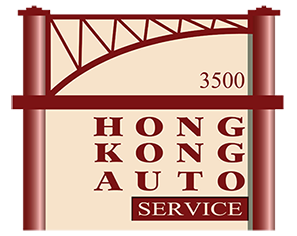Hong Kong Auto Services Guide to Scary Car Lights and Noises
As a car owner, there’s nothing more unsettling than seeing a mysterious warning light on your dashboard or hearing an unusual noise coming from under the hood. These eerie signs often appear out of nowhere, turning an ordinary drive into a nerve-wracking experience. But fear not! In this guide, we’ll help you understand these scary car lights and noises so that you can tackle them with confidence and keep your vehicle in top shape.
1. The Dreaded Check Engine Light
The check engine light is one of the most feared indicators for drivers, often seen as a dinger of costly repairs. But don’t panic just yet! This light can come on for various reasons, from a loose gas cap to a more serious engine issue.
Common Causes:
Loose or Faulty Gas Cap: This is the easiest fix. Make sure the cap is tightened properly.
Oxygen Sensor Failure: This sensor monitors the amount of unburned oxygen in your car’s exhaust.
Catalytic Converter Issues: Problems here can reduce your car’s performance and fuel economy.
What to Do: If your check engine light comes on, don’t ignore it. While it might could be minor, it’s best to have Hong Kong Auto Service scan your vehicle for error codes to determine the exact cause.
2. Brake Warning Light
Your brakes are essential for safe driving, so if this light comes on, it’s crucial to address it immediately.
Common Causes:
Low Brake Fluid: This could be due to a leak or worn brake pads.
Worn Brake Pads: Over time, brake pads wear down and need to be replaced.
ABS (Anti-lock Braking System) Malfunction: This system helps prevent your wheels from locking up during a hard brake.
What to Do: Check your brake fluid levels first. If they’re low, it might indicate a leak or worn pads. If the light persists, have your brakes inspected by Hong Kong Auto Service.
3. Battery Warning Light
This light usually appears as a battery icon and indicates an issue with your vehicle’s charging system.
Common Causes:
Alternator Problems: The alternator charges the battery while the car is running.
Loose or Corroded Battery Cables: Poor connections can prevent the battery from charging properly.
Worn Serpentine Belt: This belt drives the alternator, and if it’s slipping or broken, the battery won’t charge.
What to Do: If this light comes on while driving, your car is likely running on battery power alone. Turn off any non-essential electronics and get to Hong Kong Auto Service as soon as possible to avoid getting stranded.
4. Oil Pressure Warning Light
This is one of the more serious lights and indicates that your engine is not getting enough oil pressure.
Common Causes:
Low Oil Level: This might be due to a leak or burning oil.
Faulty Oil Pump: This pump circulates oil through your engine.
Clogged Oil Filter: A clogged filter can prevent oil from flowing properly.
What to Do: Check your oil level immediately and If it’s low, top it off and monitor it closely. If the light remains on, stop driving and have your vehicle inspected at Hong Kong Auto Service to avoid severe engine damage.
Scary Noises and What They Mean
Strange noises can be just as frightening as dashboard lights, often signaling that something isn’t quite right. Here’s how to decode some common car noises.
1. Squealing or Squeaking Brakes
This high-pitched noise usually occurs when you apply the brakes and can be alarming.
Common Causes:
Worn Brake Pads: As pads wear down, a metal indicator makes contact with the rotor, creating a squeal.
Glazed Rotors or Pads: If they overheat, they can harden and cause noise.
What to Do: Have your brakes inspected to determine if the pads need to be replaced or if the rotors need resurfacing.
2. Grinding Noise
A grinding noise, especially when braking, is a sign that something is seriously wrong.
Common Causes:
Worn Brake Pads: If ignored for too long, the pads will wear down completely, causing the metal backing to grind against the rotor.
Wheel Bearing Issues: A bad wheel bearing can also create a grinding noise.
What to Do: Address this noise immediately. Continued driving can cause further damage to your brake system or wheels.
3. Knocking or Pinging from the Engine
These sounds can indicate a range of engine issues and should not be ignored.
Common Causes:
Using Low-Grade Fuel: Some engines require premium fuel, and using a lower grade can cause knocking.
Engine Detonation: This occurs when fuel ignites prematurely in the cylinder.
Worn Engine Components: Such as piston rings or connecting rods.
What to Do: Check if you’re using the correct fuel. If the noise persists, have your engine inspected by a professional to avoid long-term damage.
4. Hissing Under the Hood
A hissing sound often indicates a fluid leak, which can lead to major issues if not addressed.
Common Causes:
Coolant Leak: A leaking radiator hose or a bad radiator cap can cause coolant to escape, leading to overheating.
Vacuum Leak: This occurs when there’s a break in one of the vacuum hoses.
What to Do: Open the hood (carefully if the engine is hot) and look for any visible signs of a leak. If you can’t find the source, have your vehicle inspected by the professionals at Hong Kong Auto Service to prevent further damage.
In Conclusion
Car lights and noises can be scary, but they don’t have to be. Understanding what they mean and how to respond can help keep your vehicle running smoothly and avoid costly repairs. Remember, regular maintenance is the key to preventing many of these issues in the first place. If in doubt, call Hong Kong Auto Service to ensure your car stays in peak condition.
